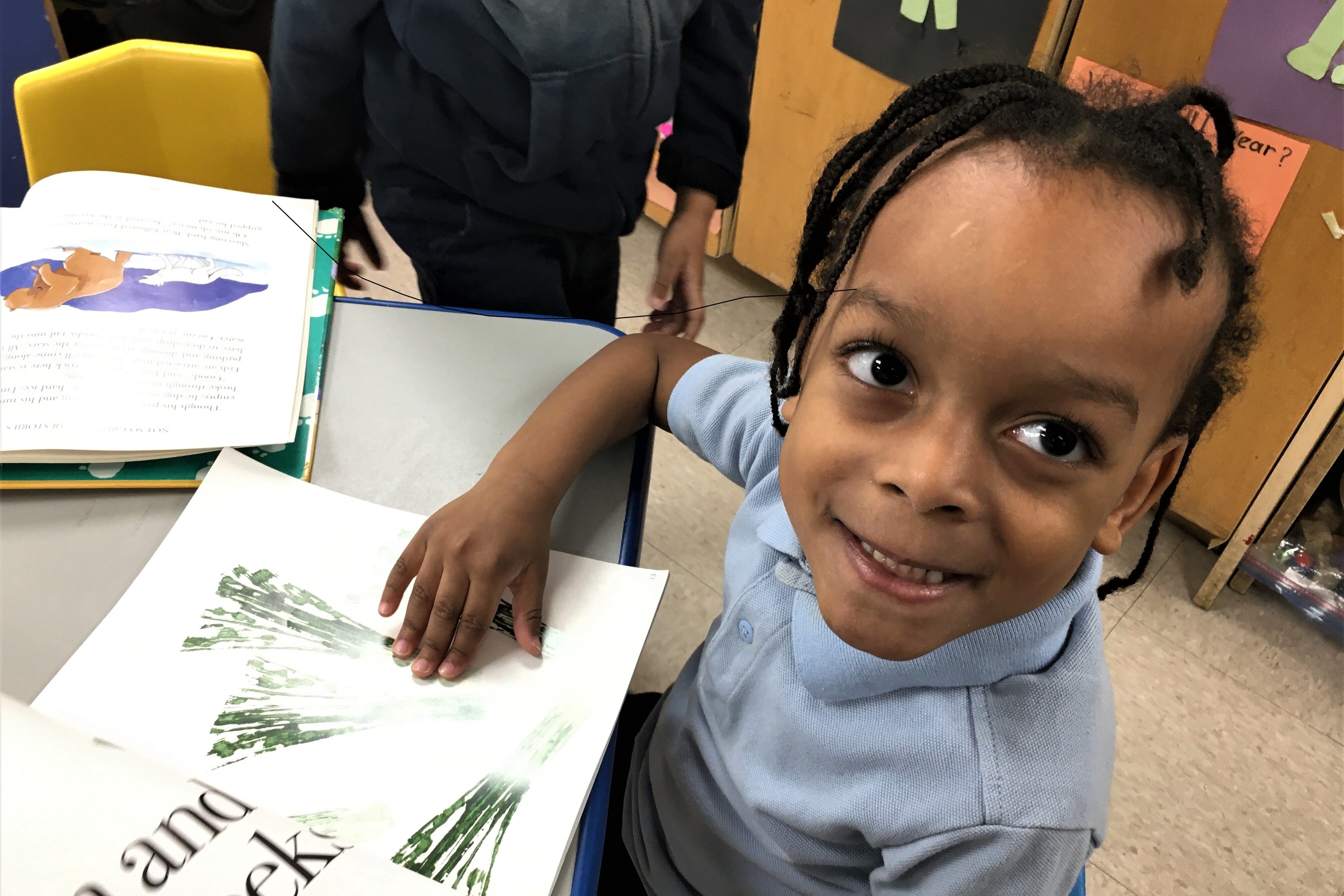Children who participate in Pennsylvania’s biggest early childhood program, Pre-K Counts, show advantages in math problem-solving and language skills, putting them four to five months ahead of kindergarten peers without the experience, according to a new study.
Pre-K Counts provides free half-day and full-day programs for 3- and 4-year-olds at risk of school failure from low-income families, those making up to 300% of the federal poverty level.
Pre-K Counts targets in particular English language learners and children with special needs. The program, which started in 2008, enrolls about 25,000 children who attend early childhood programs that the state has certified as high quality and meeting certain standards.
“These results suggest that early prekindergarten experiences in PA PKC may provide an important buffer, particularly for children from low-income families or who are otherwise at greater risk for school failure,” said the report, whose primary author is Ellen Peisner-Feinberg. She is a research professor at the University of North Carolina at Chapel Hill who has studied several state preschool programs, including those in Georgia and North Carolina.
The study found that the benefits were not greater for students who attended for two years instead of just one.
The study also highlighted areas for improvement. For instance, children who participated in Pre-K Counts did not show greater gains in social development, cognitive processes, and some areas of literacy; these are all areas where additional teacher training might offer students more varied experiences in their second year.
Because language and math skills most strongly predict academic achievement, the report noted, strength in those areas point to the benefits of Pre-K Counts. Children leaving preschool with a four-to-five-month advantage is “a substantial difference in terms of skills development, particularly for young children,” it said.
While Pre-K Counts is among the better state early childhood programs in the country, “it still has a lot of work to do,” said Steve Barnett, senior co-director of the National Institute for Early Education Research.
“One of the things research has shown over the years is that accomplishing goals set for early childhood programs is really difficult,” he said. He noted that the state funding for Pre-K Counts has varied over the years, which has “made it difficult to consistently build the level of quality that they want.”
Plus, the pandemic has slowed progress in expanding high-quality early childhood education, he said. Many child care and early childhood programs in the state have shut down, permanently or temporarily, as attendance has plummeted. Others have laid off teachers in whom they have invested training.
“The pandemic has hit them from all sides,” Barnett said. “This is a very tough year to address the quality issue, but it’s clear it needs to be addressed.”
Pre-K Counts is one of several state early childhood programs, including Ready to Learn, all funded through a combination of public and private dollars. Philadelphia has its own program, called PHL Pre-K, which makes quality care available to additional city families.
National research has shown that students who are proficient readers in third grade are significantly more likely to graduate from high school, and that students who enter kindergarten without a good foundation are less likely to reach that milestone.
President-elect Joe Biden has a plan to address the needs of children from birth to age 5, including universal access to pre-K, but it is unclear how much of it will be enacted and funded.
“As states struggle with the pandemic and its budget impacts, the nation must find ways to support essential investments in effective programs,” Barnett said.
The study was conducted before the pandemic, with students who were in kindergarten in 2018-19 and in Pre-K Counts in 2017-18. It included nearly 600 students from 28 school districts, including 51 schools and 178 classrooms.
The study was funded by the William Penn Foundation, which has also given a grant to Chalkbeat for coverage of early childhood education.








